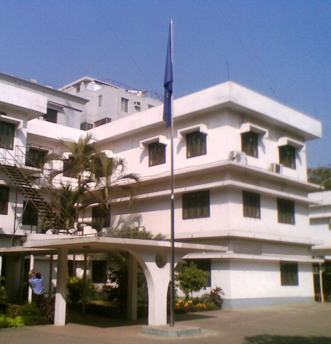Two candidate Commissioners of the Von der Leyen Commission in the hot seat. Amateurism?
(B2) The new procedure developed by the European Parliament to check the possible conflicts of interest of European Commissioners is very interesting. Even if it still sins by certain faults
A stumbling procedure
This new procedure had never been used until now. It is therefore not abnormal to see some stammerings in its handling. However, we cannot help noticing a certain amateurism on the part of the deputies present, unless it is a political will to block any procedure. Because the deputies were unable yesterday to agree on precise, concrete, useful recommendations to be addressed to the President of the European Commission (read: Rovana Plumb and Laszlo Trocsanyi are in the same boat. Who will fall in the water?). This can no doubt be explained by the presence of a large number of new MEPs in a fairly small committee (25 MEPs) which is not one of the most important in the European parliamentary hierarchy. But its role is essential when verifying the declarations of interest of candidate Commissioners or MEPs.
The question of the means of investigation is posed
One point seems urgent to resolve: the question of means of investigation. A flaw echoed by deputies from different political sides. " Our resources are extremely limited in terms of verifying information denounced the leader of the United Left group, the French Manon Aubry (GUE). Same story with his compatriot, Sébastien Séjourné, head of the French delegation of the Republic in March (centrist group Renew). " We don't have an expert available. We cannot directly contact law enforcement or financial authorities. It would take a High Authority that can have both the expertise and the competence to be able to carry out all the verifications of the declarations of interests » beforehand or a posteriori.
A risk of inequality and a purely political vote
We must also ask ourselves why some commissioner candidates pass the exam without too much difficulty and why others fail. If there is the slightest inequality in the treatment of each other, it would be harmful. And that would be the premium for the well-organized 'true cheat' and not for the clumsy 'little cheat' who got caught in the act or is unable to justify himself. If a candidate does not pass the ramp for more political than legal reasons, the procedure is distorted. It is not up to the legal committee to have an opinion on the competence or the adequacy of the commissioner to his portfolio on the merits, it is up to the committees. However, the discussion that took place yesterday in the JURI committee raises a real question mark on this point. The case of the Hungarian commissioner L. Trócsányi seems, in fact, to have been decided more on his past as Viktor Orbán's Minister of Justice than on the absence of clarification on possible conflicts of interest. B2 has had confirmation of this from MEPs, who are not very suspicious of any complacency with the regime of the Hungarian Prime Minister (read our article).
A fundamental, societal trend
By doing pioneering work, the MEPs are following in the footsteps of their predecessors who, for the past twenty years, have been strengthening their control over the appointment of the European Commission every five years. The auditions of the commissioners are not a simple formality, but a test of passage, with multiple difficult stages to cross. A real crash test ethical and democratic. The societal tendency to demand past and present blameless and blameless behavior has encouraged much stricter scrutiny of any conflict of interest.
A certain amateurism of the von der Leyen Commission?
On this point, one can only wonder about the attitude of the new European Commission. The word 'amateurism' is on everyone's lips. Why the President-designate of the European Commission, Ursula von der Leyen, did not carry out a very thorough examination of the declarations of interests of 'her' Commissioners and rejected those from whom she could not obtain certainty that there was no conflict of interest? The General Secretariat of the Commission, the Legal Service and the Security Service of the European Commission normally carry out a screening methods narrowness of candidate Commissioners. And the case of the Romanian Rovana Plumb like that of the Hungarian László Trócsányi are public knowledge. It was quite easy to clarify the situation quickly (and not at the last moment) or to reject the application directly (1). Failure to do so is not very responsible and is both political and institutional fault.
(Nicolas Gros-Verheyde)
- In the past, some candidates had been rejected due to abuse of public funds or conflict of interest, following this screening.

